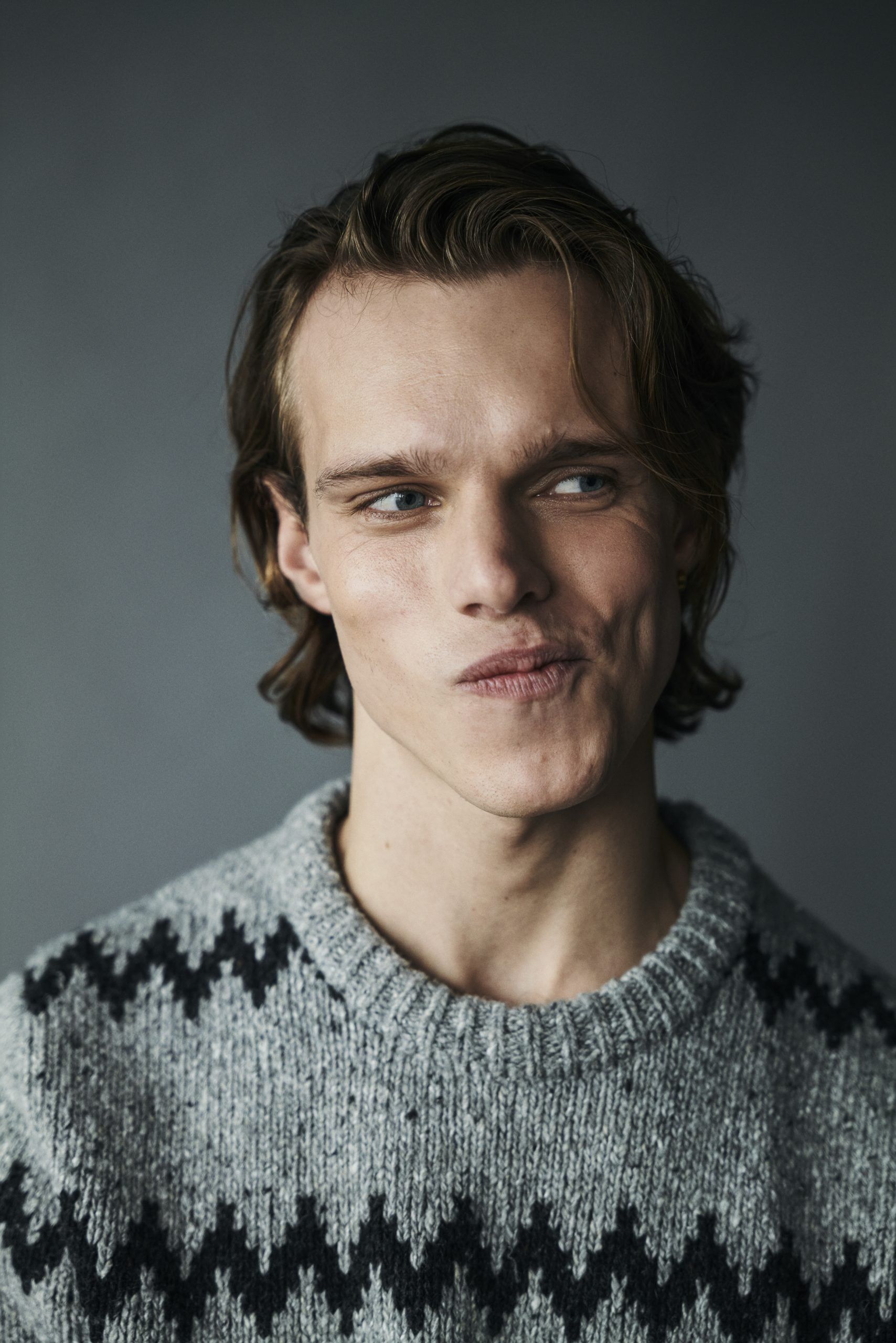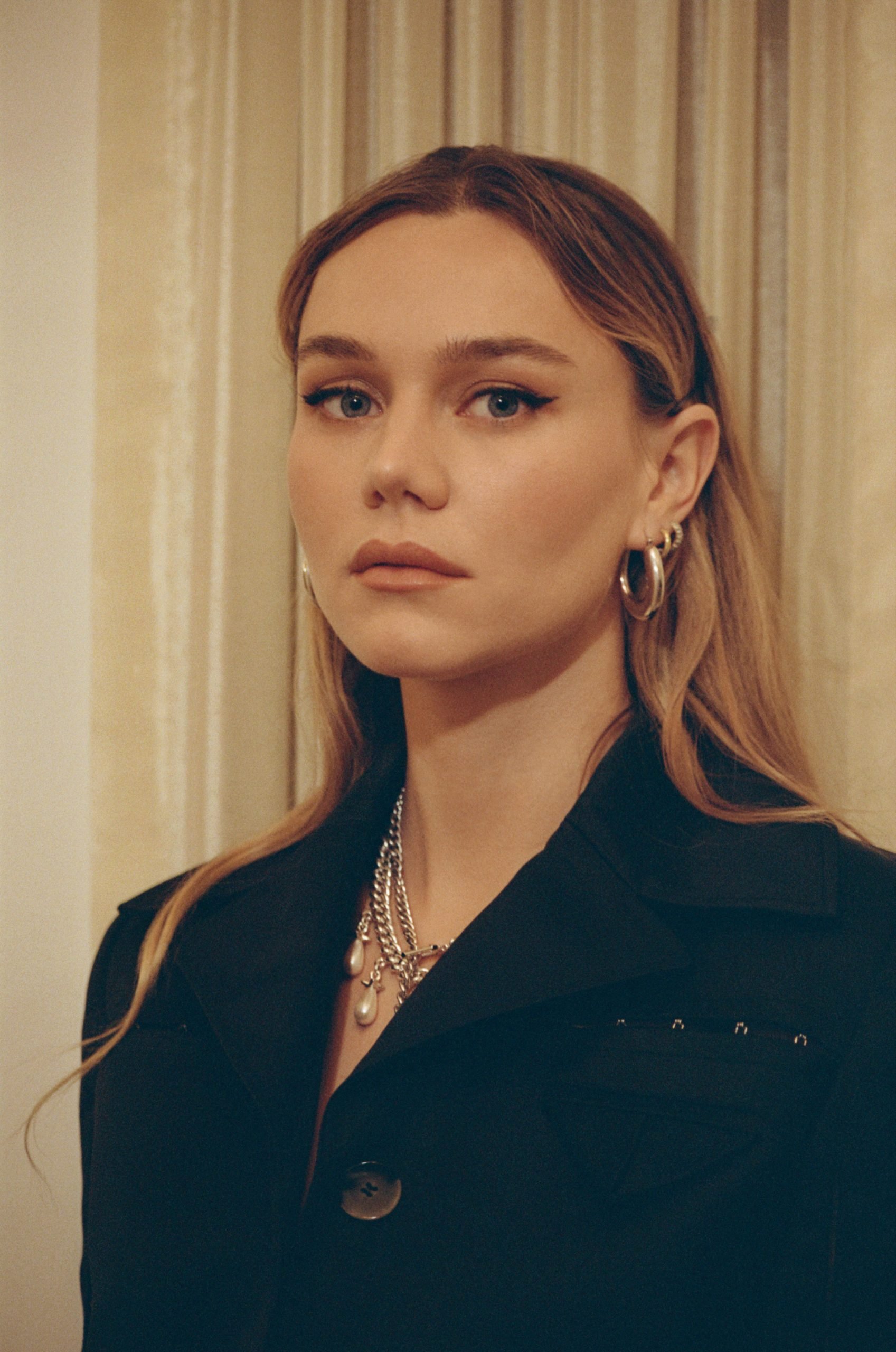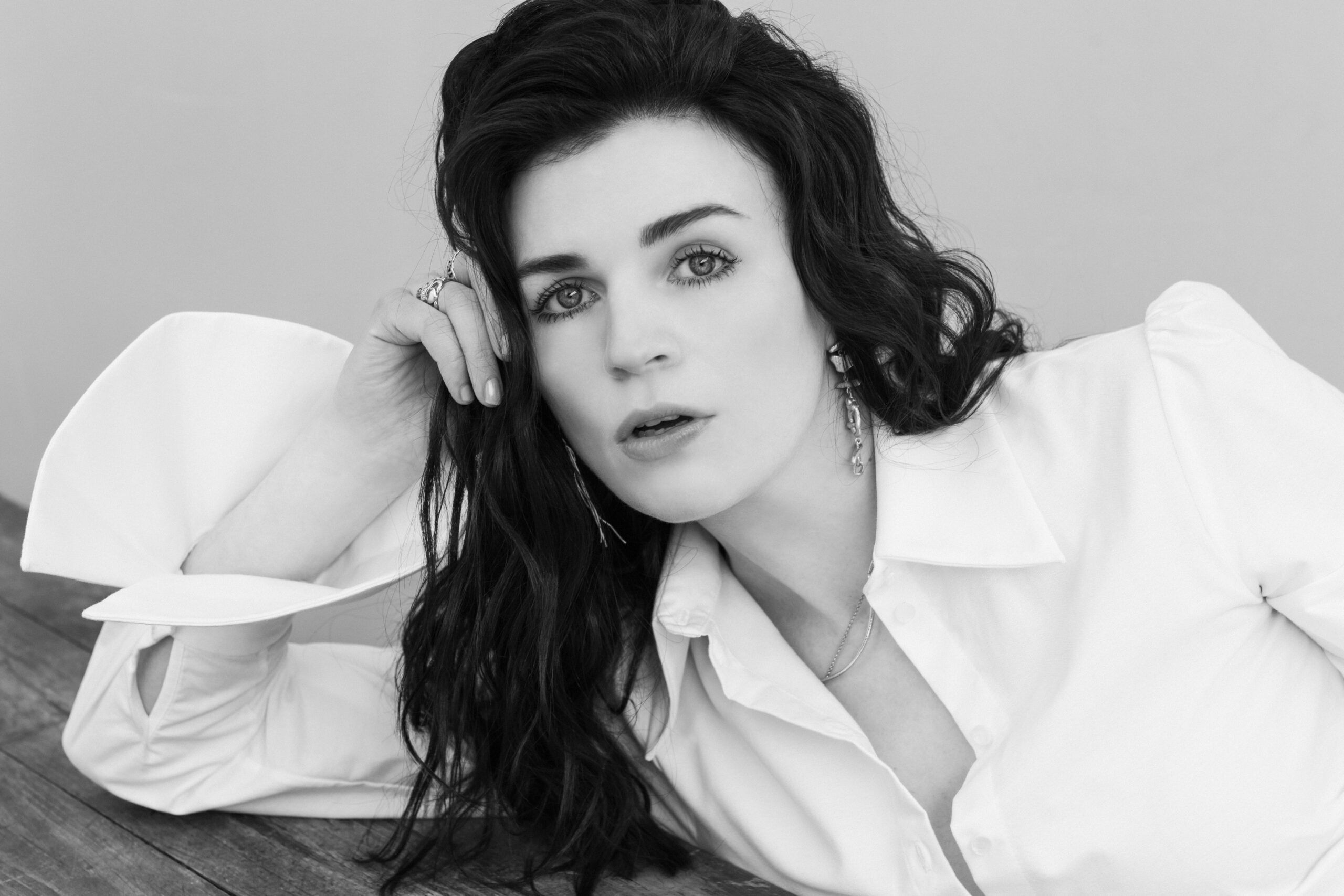
Aisling Bea
From writing & starring in the acclaimed comedy-drama This Way Up to playing the matriarch in the new Home Alone reboot, Irish actress Aisling Bea doesn’t do anything half-assed.
There is a famous quote from American writer and director Nora Ephron that reads “everything is copy,” meaning that whatever happens to you—whether it was painfully funny or tragic—it’s all fair game to write about. For Irish actress Aisling Bea, she takes that mindset even further as she walks through life as if it’s a story that she’s writing in her head with characters that become fully formed the more she speaks to them, whether they be people that she knows or three baristas at a café arguing over accepting a tip. It’s something she finds herself doing naturally after spending years grinding away as an actor starring in roles like Netflix’s Living With Yourself and The Fall while also being a rising star of the stand-up scene.
Although a lot of what she’s passionate about—from championing women’s stories to being an outspoken advocate of shopping second-hand—can sound quite serious, Aisling Bea approaches everything with a comedic view. In 2019, Bea wrote and starred in the well-loved comedy-drama This Way Up, a show about a teacher named Áine, played by Bea, who struggles with her mental health and has a nervous breakdown. It’s a role & show that will solidify Bea as a writer for years to come, even if she didn’t exactly enjoy writing its second season during the pandemic. After the show’s release, she was quickly grouped with the likes of Phoebe Waller-Bridge and Michaela Coel and, for some, the acclaim would be the moment where one would happily embrace the years of blood, sweat, and literal tears of surviving in a fickle industry. Instead, Bea avoids viewing the experience with rose-coloured glasses on, opting to see it as a project that discusses issues that matter to women and a chapter of her life that took a lot out of her but hopes that in time she’ll see the good in it.
When I sit down to chat with her about her new project Home Sweet Home Alone, she’s in a New York hotel and incredibly giddy as she shows me that her room overlooks the entirety of Central Park that’s full of autumnal foliage. She leans in and jokes that she’s secretly in the Big Apple to piggyback press off “the mouse” to support This Way Up but is equally pleased to chat about her role as the matriarch in the reboot, an experience she describes as something she needed after the pandemic. For some at this level in their career, this might seem like muscle memory; you do the big film and you get the fancy stuff that’s associated with it, including the ridiculous hotel room. For Aisling, who showed me the park view with as much wide-eyed enthusiasm and disbelief as a newbie to Hollywood, it’s a sign that she’s checking in and taking stock of what’s happening around her as she’s experiencing it, a task she’s trying to implement in her day-to-day life.
1883 Magazine’s Kelsey Barnes chats with Aisling Bea about her role in Home Sweet Home Alone, why creating the incredible comedy-drama This Way Up was anything but pleasant, her love and commitment to wearing second-hand clothing, and more.
Let’s go back to the beginning: your first on-screen role was in the Irish soap Fair City in 2009, how would you say you’ve grown as an actress since then?
Before Fair City, I did drama school which gave me classic training, but what that job taught me is that there can be a lot of snobbery in our industry about paying your bills and getting work. It definitely taught me a lot of humility and how hard a lot of actors and soaps work every day for the majority of the year. We give more awards for drama across the board than comedy which is frustrating. A lot of comedic actresses could do drama but a lot of dramatic actors can’t do comedy, it’s seen as almost like a lesser craft. In regards to soaps, if you can learn that many lines and get through that many emotional scenes and the number of dead husbands in the garage, that to me is acting [Laughs]. I wouldn’t say I’ve grown since then but it gave me a good dose of humility after drama school because I think if I’d had booked a movie straight away I would have absolutely been on route to becoming a giant dickhead.
There’s this weird idea that comedy is lowbrow which is very odd.
It is! So many see drama as this big craft and that’s reflected in the budgets and awards. Why should it take more money to make a dramatic scene than a comedy scene? Because a Transformer is going to come in and knock everything down? Why is comedy seen as lesser? It’s the same argument with pop music being less cool than rock music—why is that? Is it because young girls like it? That’s my two cents on it.
Something I love about your career is how integral writing has been to it; I read that after LADMA you wrote some short stories and put them on Facebook, and a BBC producer saw them and reached out and said you’re a great writer. I loved that you just stumbled into it, in a way.
Years ago I wrote funny short stories as a way for me to just.. Write? [Laughs] It sounds ridiculous but I never really thought I could write because since I was a kid acting was always the main meat of the dish. I’ve been an actor for almost 20 years now and I’ve done training and every goddamn terrible job. I liken it to people who might’ve studied writing or English at University, yourself included. It just started coming out of me, but I haven’t found out how to do it as a craft and still have a life outside of it.
Does it feel like there’s no point where you can turn off the writer’s brain?
That’s exactly how it feels. With acting, I go home in the evenings and learn my lines or prep for an audition. It’s my business, my craft, my creative endeavour that exists as a kind of catharsis. I don’t have that balance with writing; it really does just come out of my fingers. But when I’m being paid for it, or if there’s a deadline, I find the business side of it to be difficult. The easy part, for me, is articulating and taking what I’ve seen in the world and translating that into words. When I’m writing This Way Up it feels like I’m separating myself but it’s always there, it doesn’t stop. I’d like to work out how to do the job and leave it as a job.
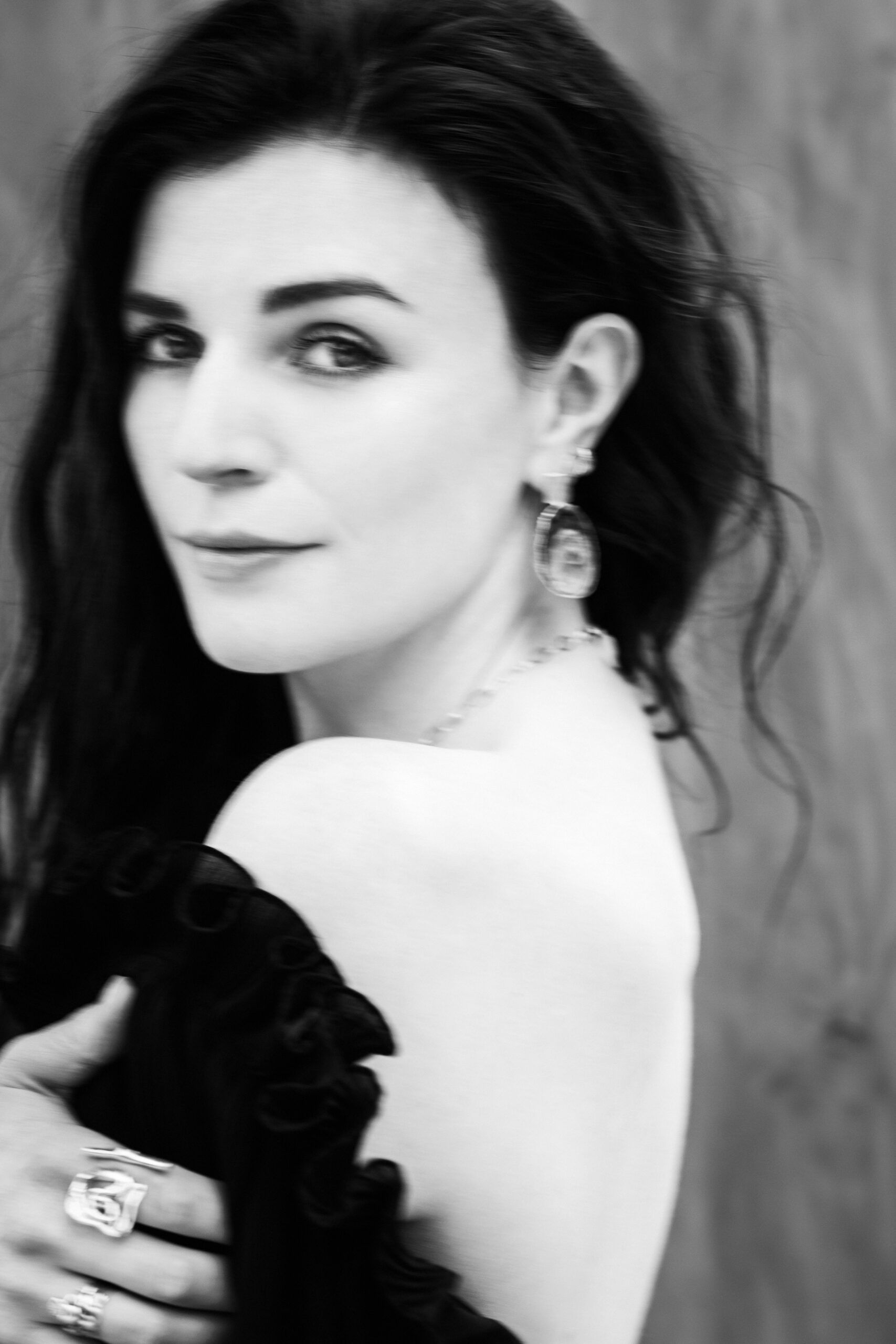
This Way Up explores loneliness in such an interesting way; I believe it was for the Guardian where you mention that a lot of the mundanity of women’s lives were important and that “a lot of the revolutions happened in kitchens and health centres and in your private parts” which I thought was so powerful.
Yeah, we’re taught those moments are mundane. If we look at lockdown, all those moments became huge; they are the moments that cause divorce. War is rarely a cause of separation, but sitting and staring at someone and hearing them breathe and realizing you don’t like the sound of their breathing can absolutely be a massive cause of divorce. I view storytelling the same way I view stand-up: the more specific you are, the more appeal there is. With the sisters in the show, when I write something about one of them getting Granny’s tin instead of the other, that’s specific. I go around observing myself and other people, watching them interact in cafes and such, and it just sticks. Even today, I went to the coffee shop this morning and I was observing the dynamics of the three people behind the counter—I see them as fully rounded characters. I’m watching how they interact, picking up on the way they express certain things. I can create a story around something quite quickly.
Since This Way Up is shaped around the theme of loneliness, what was it like to experience writing the second season while in lockdown?
To put it bluntly, there was no good creative thing to come out of it. It just made the actual job more difficult and made the work of everyone around me more difficult. I’m sure there are places down the road where I’ll feel like the universe was trying to tell me something, but I haven’t gotten there yet.
Yeah, I read that it wasn’t an enjoyable experience because writing it took so much out of you.
Kelsey, I have to be honest with you: I don’t enjoy writing. [Laughs] I haven’t enjoyed it, I have to work out how to though. Maybe that’s part of the craft. I remember being so nervous when I first became an actress and when I started doing stand-up, there were times I would be vomiting before going out on stage. When I’m here I’m hopping on a show in New York and again when I’m in LA in a few weeks. I’m nervous because America feels like a different beast with stand-up, but it’s a nervousness that I absolutely know how to cope with at worst an average show.
With writing, I’m still learning things about the craft and characters and how to get to something faster and where the hit moments need to be. At the moment I really hate writing on my own and all of the work I’ve done so far has been on my own. God, even when I’m saying it now I can actually hear my voice becoming more monotone and my head dropping as if I’m writing a description of a character! [Laughs]
See, you really can’t turn off the writer’s brain! You wrote some of This Way Up during filming of Home Sweet Home Alone which must’ve been an interesting experience for you. Did you feel like you had to hop in and out of characters while doing both?
The thing about American shoots, even though we shot it in Canada, is they stop when they are finished. There is no wrapping up at 7 pm or whatever. You make a plan for your day and for your breaks because if you know they are picking you up at 5 am, you can’t be there any longer than 6 pm. I would be writing and editing into the night and working 17 hour days while also trying to speak to people dealing with This Way Up over in the UK. It wasn’t easy.
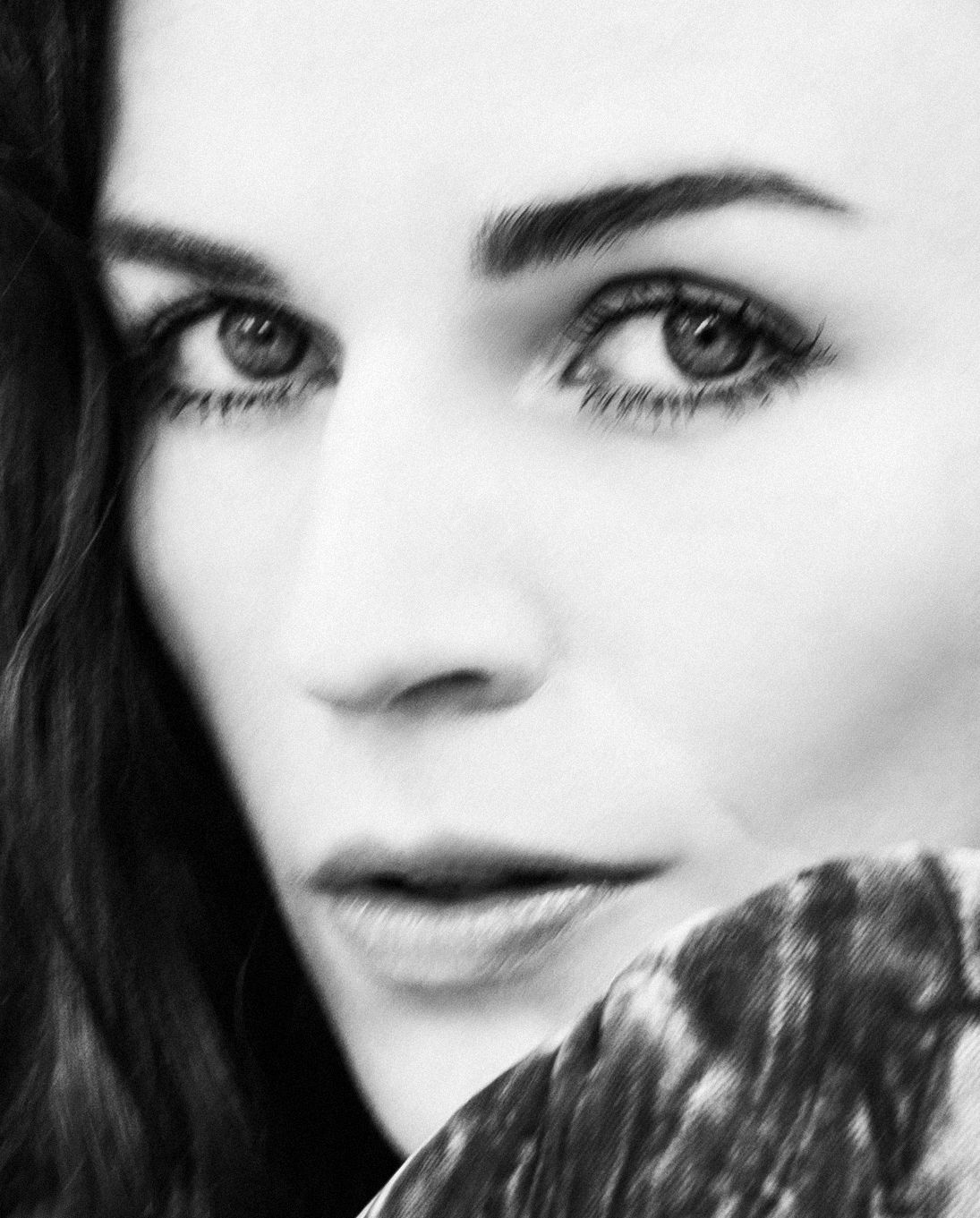
Home Sweet Home Alone is part of the Home Alone franchise which is so well-loved. I’d love to know if you spoke to your own mum about instances over the holidays when you were a kid to flesh out your character of Carol?
You are catching me without coming up with a pretend bullshit answer! [Laughs] No, not at all. It’s not a remake of the original by any means, but the one thing I tried to connect with is the truth of the scene. With comedy, the funny parts come from the truth. Carol isn’t an easy person which might be quite different from the original. Catherine O’Hara is one of my absolute favourites and the costume designer and I picked certain clothes as an homage to her as Kate in the original. With Carol, you know how you know people you don’t like who are good in marriages and absolute idiots that are good parents?
[Laughs] Oh yes.
Right? So the fact that someone might not be a nice person socially doesn’t mean they aren’t a very loving parent, so that was what I was trying to connect with Carol. It seems crazy [accidentally leaving your child behind] but God knows I can understand how it can happen. The energy of trying to get home to them is the feeling I was trying to capture for this part.
Like you said before, there’s truth in comedy; people need to believe that and it needs to be portrayed properly in a way that makes it seem believable.
Yeah, you can make it as big or as small as you want but it needs to be believable. If you as the viewer don’t think this mother genuinely is missing her son, then that actually changes the dynamics and the tone of the entire film. Even if she’s a bit of a dickhead, the bit I can connect with is her longing to be reunited with her child and finally get to hold them.
Do you try to pick out that humanity with all of the characters you portray?
Yeah, I do. I remember Jamie Dornan mentioning something similar when he did The Fall which will always be one of his standout performances. He said the character is a good dad. He’s an awful, horrible murderer, but he’s a good dad. I liked that. Even when I write, I like putting bits of myself into every character. It’s not about being good or bad because I think no one is just one or the other. Humans don’t exist as evil or good; anything is out of balance if they are too much on one side. A modern philosopher said that but I can’t remember their name! [Laughs] I like making sure everyone can realize why someone could love someone else even if they’ve done bad things.
It’s finding that thread of humanity and personal connection.
Yes! I love apocalyptic shows so when I got COVID in August, despite being fully vaccinated, I was watching apocalyptic movies because I love to see what happens when the world falls away and what qualities people have to survive. I can tell you right now, I would be fucking useless. I just find those extremes quite interesting because it leads to really different characters that aren’t just typical.
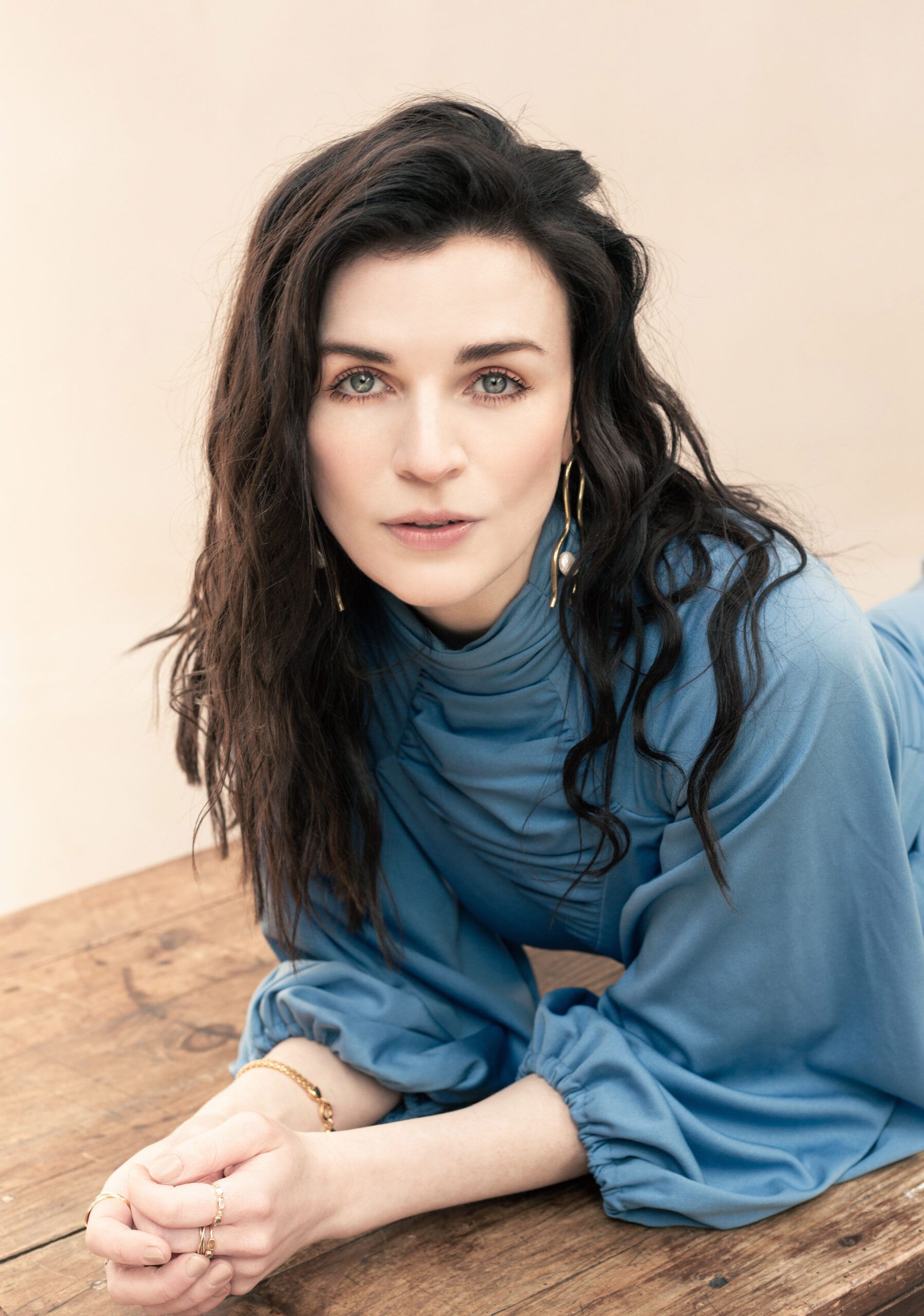
I want to chat about your hashtag #SecondHandIsSexy. Obviously Hollywood is all about the glitz and the glamour but it’s cool to see someone in the industry highlighting why second-hand is a great idea.
What age are you?
I’m 29 this week actually!
Oh, welcome! Well, some advice for the next few years: it’s all going to be fine. You won’t get to where you thought you wanted to go by 33 and realize you didn’t really plan for that but you make peace with it and then you stop caring. I’m 37 and I still feel like there’s this kind of bravissimo of doing well in regards to what you do or don’t have. Yesterday on the airplane I was in this giant hoodie because I wanted to be comfy and I love loungewear! Some flight attendants were big fans of mine and I could see all of the businessmen around me wondering what I was doing there. This idea that we need to buy new or look a certain way in order to be deemed important or successful. For some, buying ridiculously expensive things is a sign of success when in reality it’s a massive failure of the whole system. I remember when I was on that soap with another actor and we went into town one day for dinner. A nice dress from Oxfam [charity shop in Ireland & UK] caught my eye and I wanted to go look at it. He questioned why I’d go there when I was doing well. I was just really interested in his idea that just because I’m doing well that means I should spend loads of money on something.
Yeah, it’s about the actual object, not the price of it.
Exactly. I think that’s maybe one thing the pandemic might have helped in terms of fast fashion because you don’t need to buy things each season when you can wear loungewear all year. Something I can’t stand is greenwashing, though. I like to be accountable; I think half of the stuff I want to wear for my press this week is from eco-friendly or small businesses and they’re vintage. The other half is new stuff from a brand that I’m borrowing and the pieces will get sent back. It’s impossible to be perfect but I must be accountable for what I wear. There’s a lot of nuances to this discussion—fast fashion can be the only opportunity for easily accessible pieces for different sizes, too, and when you’re wearing what makes you feel good you do more good for the world. I think what needs addressing is our attitudes towards stuff and the importance which we place on new things.
I also want to talk about books as I know you have a book club on your Instagram! We are both mutual lovers of Dolly Alderton who is just the best. What are you reading as of late?
Oh, Dolly is brilliant! I loved her book Ghosts so much.
Me too! She has this incredible way with words.
She’s so good at every damn thing she does. So on Instagram I have only ever post about books I’ve actually read which I’m quite slow at because I get sent so much and I always want to get the tone right because I want to make sure it reads well and has all the information there. At the moment I’m reading a book by another journalist called The Truth Must Dazzle Gradually by Helen Cullen. I’m just about a third through but I’m loving it. My favourite thing is when you actually want to read the book more than you want to look at your phone and that’s how I feel about this one.
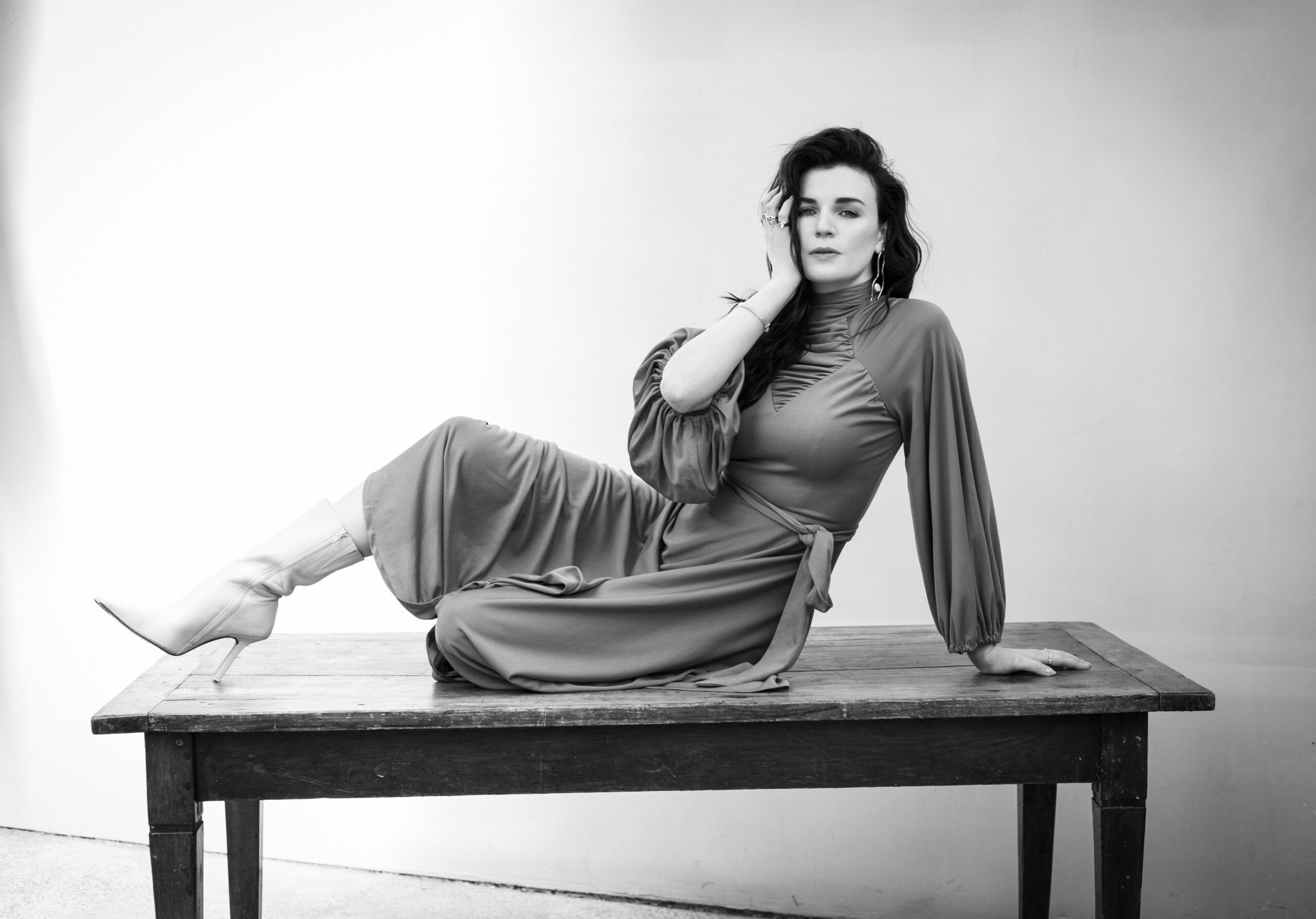
I was reading your interview with Stylist from earlier this year and you mention that getting recognition now instead of in your 20s was something of a blessing in disguise. Was this type of mindset something you’ve had throughout your career or is it something you’ve embraced recently?
I’ve always been someone who lives very much in the past or the future, but find it difficult to be really present. I think [that mindset] came from letting go of the need to control. When you’re ambitious, you constantly want to get to that next thing. It’s important to acknowledge the big takeaways, like how we’re having this conversation because I’m in a Home Alone movie which is just iconic and brings back memories from when I was a kid. I’m here chatting with you in my hotel room overlooking Central Park. It’s just madness. Today was the first time in a very long time that I actually felt present and enjoying it.
My big advice is to feel the success as it’s happening. I’d love to get a movie and enjoy filming it, I’d love to feel really present and funny on the day and those sorts of things. Sometimes we are so busy looking ahead we aren’t focusing on what’s currently happening. You want to check-in and focus on yourself and ask yourself how you’re feeling and if you’re acknowledging both what you’re feeling and what you’re achieving. My advice is to stay ambitious, but also be ambitious with your feelings as well.
Well, that’s a beautiful way to end our chat. Before we go, I want to just mention how touching it was to read the dedication for the final episode of This Way Up: “written for anyone who needs a reminder to find hope”. I just wanted to thank you for it as I know writing and creating this show must’ve felt really difficult at times.
Oh, thank you very much. That’s very sweet. I’m an emotional old Pisces.
Us water signs love to get emotional.
Yes!! Happy, happy birthday. It’s your time to shine. Thank you for the chat.
Home Sweet Home Alone is streaming now exclusively on Disney+. Follow Aisling Bea at @weemissbea.
Interview Kelsey Barnes
Photographer Lee Malone
Stylist Anne O’shea
Hair Narad Kutowaroo
MUA Emma White Turl
Styling Assistant Caitlyn Lecky



